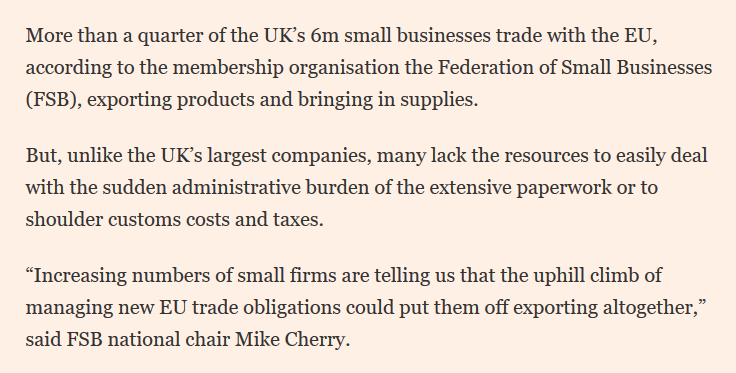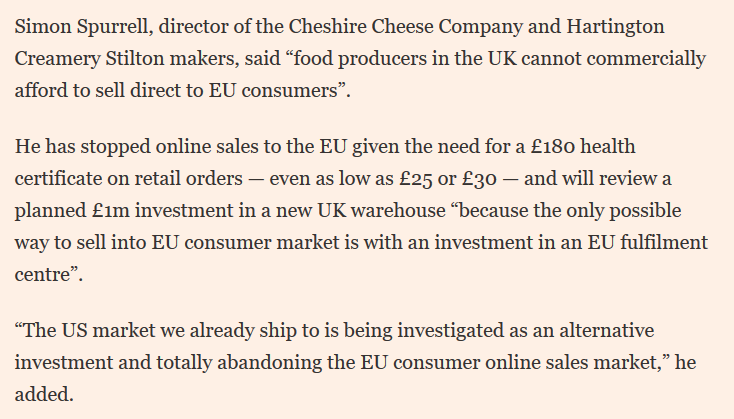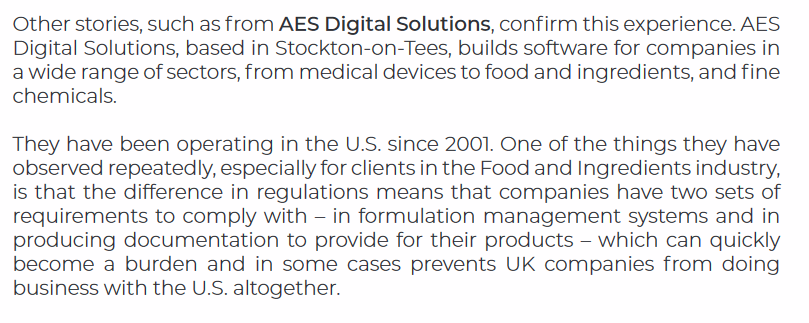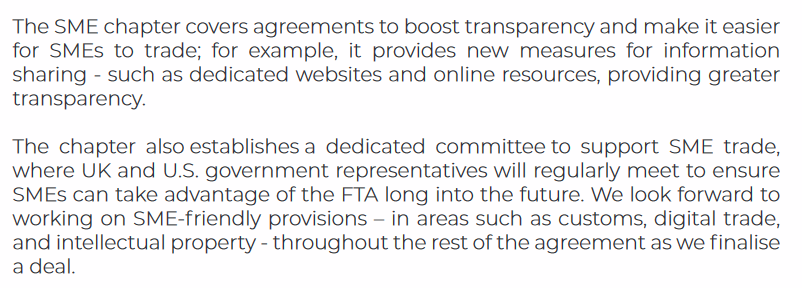Small business in particular struggling with new Brexit red tape. Entirely predictable, and a function of a world trade system distorted against smaller traders. Stay with me a short while as Brexit threadmeister and story author @pmdfoster may say... 1/ https://www.ft.com/content/13f0f13a-abce-4327-ad81-aaf392518b2a?segmentId=bf7fa2fd-67ee-cdfa-8261-b2a3edbdf916
The nub of the issue is the extra costs for most exports, whether this is paperwork or meeting different regulatory requirements. A fixed cost per exported load inevitably adds a higher percentage cost to small than larger business... and they may lack expertise. 2/
You'll note that in the EU, with virtually no paperwork or differing regulations, the costs of exports are similar for smaller and large companies - though even there there is a big company bias, because who can afford to lobby for friendly regulations? 3/
The same unfortunately typically applies to trade deals. If you are Nissan and threaten to leave the country without the right deal you have more clout than a small cheesemaker. As we see. But is it just the EU that is over-bureaucratic? Sadly not... 4/
One of the best UK business groups on trade policy @BritAmBusiness (and yes you can quote me @EmanueAdam) has a new report out on a UK-US trade deal and SMEs. It shows opportunities. But unfortunately problems unlikely to be solved. 5/ https://www.babinc.org/wp-content/uploads/2021/01/Making-a-Difference.pdf
The US regulatory system is just as prescriptive and difficult as the EU one, as suggested in this clip from the BAB report. And no trade deal the US has ever done has helped this, because USTR guard the independence of regulators fiercely. Hopes to change this in TTIP failed. 6/
So what of dedicated SME chapters in trade agreements, pioneered by the EU and enthusiastically adopted by the UK (here clipped from foreword to the BAB report by @GregHands)? Well, you'd rather have them than not. But their focus looks rather limited. 7/
I recall discussing limitations of a proposed trade agreement SME chapter with the EU Commission in 2015. That information is nice, but to make a difference you need to tilt the balance towards SMEs, for example implementing a dedicated small business issue resolution service. 8/
Suffice to say we still haven't really seen a good trade agreement SME chapter from EU or UK. Some SMEs trade well, in services with fewer clear barriers, niche high value goods, or as part of multinational supply chains. But too many struggle. 9/
But finishing with Brexit, once again we have to face new long term trading realities, that small business will be particularly disadvantaged by the end of seamless trade. Government could choose to do more to help, but so far SMEs are not their priority. 10 / end

 Read on Twitter
Read on Twitter





